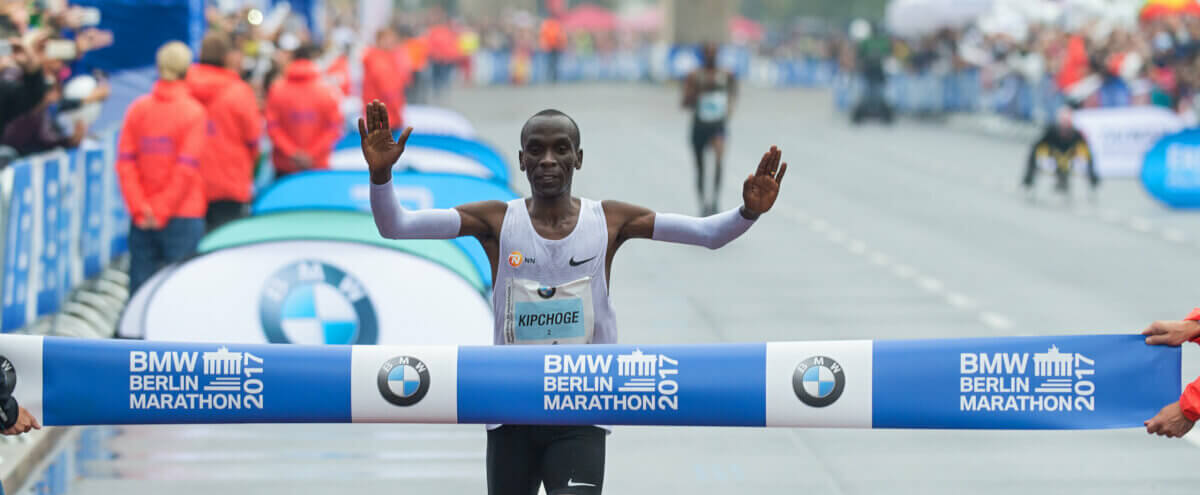On 25 September 2022 Kenya’s Eliud Kipchoge ran the Berlin Marathon in a new world record time of 2 hours, 1 minute and 9 seconds. That’s 30 seconds faster than the previous world record, which he set in 2018.
The last eight world men’s marathon records were set in Berlin.
The winner of the race was never in doubt. Kipchoge led from the start, steadily increasing his lead to finish almost five minutes ahead of second-place runner, Mark Korir, also Kenyan, at 2:05:58.
Most of the pre-race speculation was about whether Kipchoge would be able to break his 2018 world record of 2:01:39 and maybe even run below the magical two-hour barrier.
On the day he easily broke the record but missed the two-hour mark by just over a minute.
In 2017 Kipchoge ran the 42.2km marathon distance in 2:00:25 in a staged exhibition race. In 2019, in another staged exhibition event, he ran 1:59:40. Those were special events with dedicated pacemakers, a pre-picked route and additional support. To date, no-one has managed yet to break 2 hours in a standard marathon event.
While he may not have broken the two-hour mark the Berlin record was a remarkable run by Kipchoge that’s worth breaking down.
So, how fast is that really?
A hundred years ago in 1922 the marathon record was 2:32:35, set by Hannes Kolehmainen of Finland. Over the past 20 years the record has steadily been reduced from 2:05:38, set by Morocco-born Khalid Khannouchi in 2002, to Kipchioge’s latest 2:01:09.
During his record-breaking run in the Berlin Marathon 2022, Kipchoge averaged 2 minutes 52 seconds per kilometre. He only dropped his pace to over three minutes a kilometre for two kilometres.
2:52 per kilometre is the equivalent of running 100 metres in 17.2 seconds. The world 100m record, held by Usain Bolt, is 9:58. Seventeen seconds may be noticeably slower than Bolt, but Kipchoge ran that same 100m pace for 42.2km, or 422 times back-to-back.
But 100m is not the only distance that Kipchoge would beat most of us at.
Every Saturday morning around the world thousands of people take part in their local Parkruns, a 5km challenge that participants either walk or run. The fastest Parkrun to date is by Briton Andrew Baddeley in a time of 13 minutes 48 seconds for the 5km. Kipchoge ran 5km during his world record run at 14 minutes 21 seconds and he ran it eight times in succession.
How fast are you?
The average finishing time for runners at the Berlin Marathon is around 3 hours and 45 minutes. That’s a pace of 5 minutes 21 seconds per kilometre. Add your best running time below and see how you would compare to Eliud Kipchoge.
